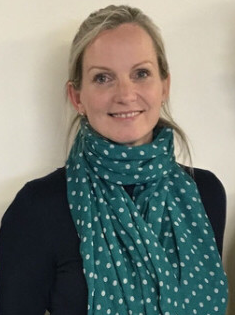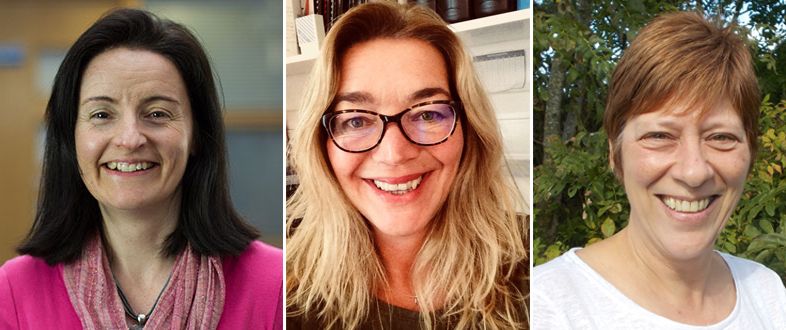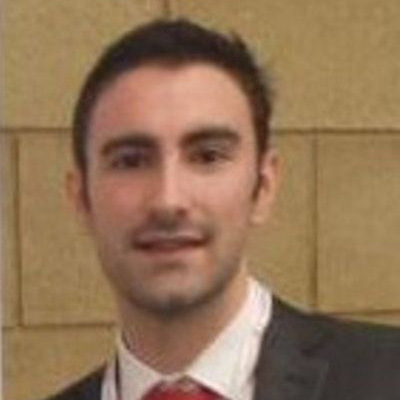Guest Blog

ENRICHEnabling Research in Care Homes
GUEST BLOG
Welcome to the ENRICH guest blog
Read the real-life experiences of people involved in care home research.
Anyone with a story or advice they'd like to share is encouraged to make contact using the contact us page.
Read about current news and developments for care homes research in the new posts section.
Redeployment During COVID19 – Fawn’s Story
Fawn Harrad is a final year PhD student in the Department of Health Sciences, University of Leicester. Fawn also works part-time as an ENRICH Care Home Research Facilitator at CRN West Midlands.
Fawn’s PhD study explores hospital transfers from care homes. She has recently been redeployed to work in a care home due to the COVID-19 pandemic and was keen to share her experience.
Technology as a tool for social connection during COVID-19: Translating findings to care homes
Dr Gemma Wilson is a Health Psychologist and Senior Research Fellow in Applied Health, Mrs Jessica Gates is a PhD researcher and research assistant both based at Northumbria University.
A recent study, funded by the British Academy/Leverhulme Trust, explored older adults’ experiences of using technology (including social media) to connect with others.
The findings highlighted the importance of technology and social media for social relationships, specifically visual communication tools. Although this study was carried out before the onset of COVID-19, and with older adults living independently, there are some translatable outcomes for the adoption of technology for social connection in care homes.
New study funded by the NIHR Applied Research Collaboration Wessex: Good-NIGHT COVID-19 to care-home-based vulnerable individuals
Dr Ryan Buchanan, Academic Clinical Lecturer, Primary Care, Population Science and Medical Education, University of Southampton
Keeping in touch with your care home collaborators through Covid-19
Nisha joined Aston University in September 2016, having spent the previous four years as a Clinical Audiologist, and developing research skills within a medical college.
I have a strong passion for the understanding and enhancement of patient outcomes, from service provision to long term clinical management. This is reflected in my research interests to design interventions that will have direct benefit to patients with concurrent health conditions such as hearing loss and cognitive decline.
I am currently undertaking a part-time PhD to investigate the impact of hearing loss and dementia on social isolation in older adults. In addition, I maintain my clinical status by seeing patients part-time for adult aural rehabilitation and tinnitus management.
In this blog I share my thoughts on how Covid-19 has impacted my research project and the importance of keeping in touch with my care home collaborators at this time.
Material Citizenship: the importance of functional objects in care homes whilst social distancing
Dr Kellyn Lee, Research Fellow – Ageing and Dementia, School of Health Sciences, University of Southampton
I am passionate about conducting applied research that seeks to improve the experiences of those who live and work in care homes.
In this blog I introduce Material Citizenship (a conceptual framework developed from my PhD) as a way of providing care that supports residents to live an active and meaningful life during social distancing and beyond.
‘My Nature’: A Training Toolkit for Care Home Staff
Noreen Orr, Research Fellow, NIHR CLAHRC South West Peninsula (PenCLAHRC), University of Exeter, Wendy Brewin, Creative Spaces Project Manager, Sensory Trust, and Ruth Garside, Senior Lecturer, University of Exeter Medical School
We are passionate about the natural environment and believe that nature is good for the health and wellbeing of older people living in care homes. For over 20 years, Sensory Trust has been developing a range of projects promoting sensory approaches to the natural environment in the belief that it brings social, health and wellbeing benefits. Four years ago, we collaborated on a project to synthesise qualitative evidence (words) on how older people (including those with dementia) describe their sensory engagement with the outside world.
Incorporating Patient and Public Involvement (PPI) into Dementia Research: Alzheimer’s Society Research Network & the DCM™ EPIC trial
Alys Griffiths, Research Fellow, Leeds Beckett University
The Dementia Care Mapping (DCM™) Enhancing Person-centred care in Care Homes (EPIC) clinical trial aimed to understand whether DCM™ reduced behaviours that are often associated with agitation for people living with dementia in care homes.
Improving the Management of Behavioural and Psychological Symptoms of Dementia (BPSD) in Care Homes
Emma Randle, Clinical Studies Officer (CSO) at The National Centre for Mental Health, The Barberry, Birmingham
In this blog post, Emma Randle, who is the Clinical Studies Officer (CSO) at The National Centre for Mental Health, The Barberry, Birmingham, reflects on the MEDREV study, which was led by Dr Ian Maidment, a Senior Lecturer in Clinical Pharmacy at Aston University. The study tested the feasibility of staff training (for care home staff and GPs) and medication review (by specialist pharmacists) to limit inappropriate prescribing of psychotropics for Behavioural and Psychological Symptoms of Dementia (BPSD) in people with dementia in care homes.
Getting to the nub of the issue: Involving people who are living with dementia
Anna Volkmer, Speech and Language Therapist/NIHR Doctoral Research Fellow, University College London
Anna completed her undergraduate speech and language therapy degree at UCL, in 2002, before embarking on a career working in neurological conditions, such as dementia. In this blog post, she outlines how patient and public involvement has strengthened her PhD project.
East Midlands showcase their research muscles in Research in Ageing Network Discussion Paper
Chris Craig, Research in Ageing Network Coordinator, Collaborations for Leadership in Applied Health Research and Care (CLAHRC) East Midlands
Turning the spotlight on care home research happening across the East Midlands, Chris Craig discovers the breadth of research expertise in the region.









